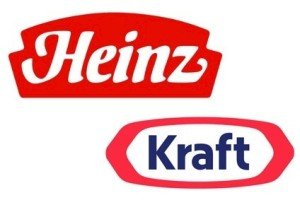Kraft Foods has been in the news a lot the past couple of weeks. First they recalled 6.5 million boxes of Macaroni and Cheese because metal pieces were found in boxes. When your food goes down a conveyor belt, things can happen along the way.
Unless you follow food recalls, most of the time you may not even realize how much processed food is recalled. For example, last January Kraft recalled 1.8 million pounds of Velveeta Cheesy Skillets because they didn’t label them as having known allergens hydrolyzed soy protein and dried soy sauce. In May they recalled 1.2 million cases of Kraft’s cottage cheese because they were not stored at “temperature standards,” and in June they recalled a ton of Velveeta because it didn’t have enough preservative in it. In September they recalled 7,700 cases (not packages) of Kraft American Singles after a supplier failed to store an ingredient correctly. In October 2013, 735,000 cases of Kraft’s Polly-O string cheese was recalled because they were likely to spoil or change color before their best used by date.[1] In 2011 they recalled 137,000 cases of Velveeta Shells & Cheese because of wire bristle pieces in some packages, particularly a problem for anyone who followed the instructions and put them in the microwave.
Yesterday Kraft announced they’ll merge with Heinz, creating the third largest food and beverage company in North America.[2] The two largest food companies, Sysco and US Foods, tried to merge last month and that merger was blocked by the Federal Trade Commission. Kraft has not been doing well financially the past couple of years, and they attribute that to younger Americans increasingly shifting away from processed food and GMO ingredients toward organic.
Organic production, once only a locally grown movement, is following the conventional pattern — big buyers like Wal-Mart, General Mills, and Dean Foods have been so successful at spurring demand for low-cost organic ingredients that domestic suppliers cannot meet it all, and big buyers are turning to the big, low-cost producers in Brazil, Argentina, and China.[3] As these imports increase, they will drive down domestic organic prices.
The necessity of the Kraft merger proves that every meal we eat is truly a vote, and those votes obviously affect the largest corporations in the world. As hundreds of thousands of people continue to shift the way they eat, next we can improve the current factory farming practices and heal our food system while restoring the health of our planet.
[1] “Kraft Just Recalled 3120 Velveeta Boxes from 12 States for the Most Absurd Reason,” by Lulu Chang, Bustle, May 20, 2014.
[2] “Kraft Will Merge With Heinz in Deal Backed by 3G and Buffett,” by Craig Giammona and Matthew Boyle, Bloomberg Business, March 25, 2015.
[3] “The End of Food,” Paul Roberts, Houghton Mifflin Company, 2009.





